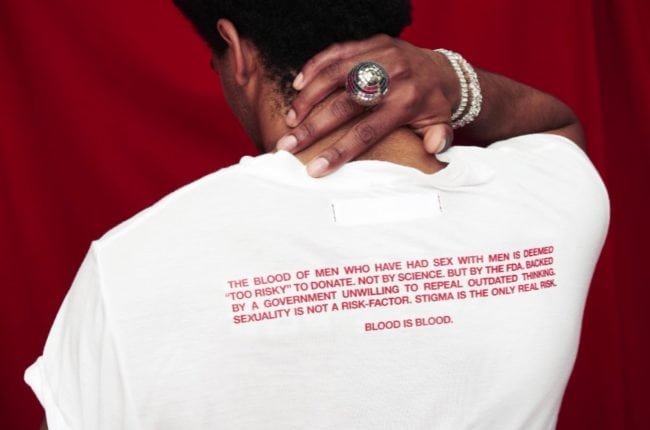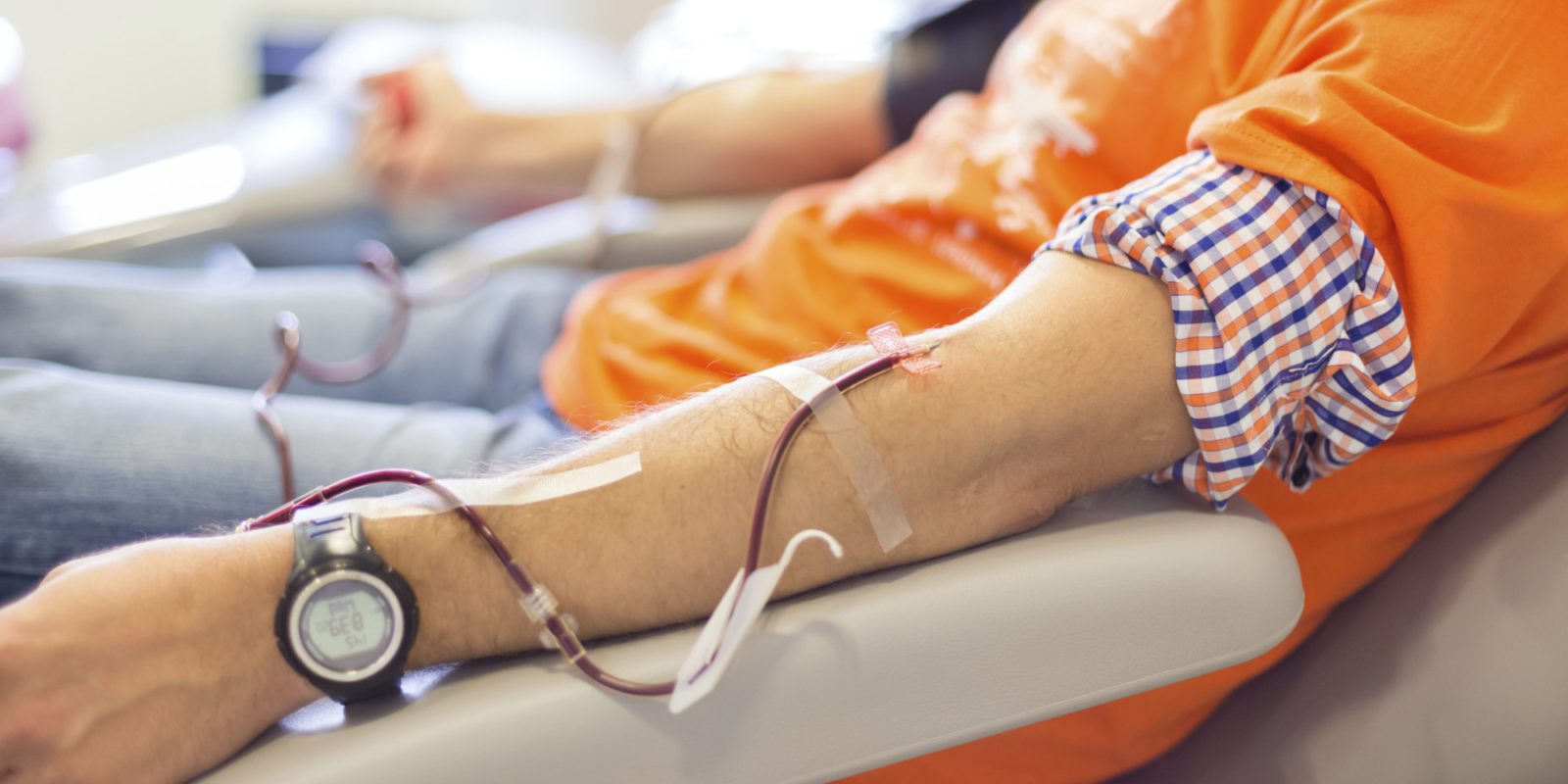These gay men created a T-shirt made of their blood to protest donation ban

Gay employees at the creative company Mother have created a T-shirt printed using their blood to protest the gay blood donation ban in the US.
The company, which has offices in New York and London, launched the Blood is Blood T-shirt to highlight the discrimination LGBT people face when donating blood.
The front of the T-shirt reads: “This shirt is printed with the blood of gay men.”
On the back, a longer piece of text states the US Food and Drug Administration’s current guidelines for donating blood are “outdated” and propagate stigma.
The T-shirts will be sold at gender-neutral retailer The Phluid Project, with proceeds going to Callen-Lorde Community Health Center, a LGBTQ service provider in New York.

The T-shirt protests the gay blood donation ban (Mother)
The ink for the shirt was created by British artist Stuart Semple.
It was launched for Pride month and World Blood Donor Day.
Under US federal law, men who have sex with men (MSM) cannot give blood for 12 months from their last sexual encounter.
The law came into effect in 2015, when the FDA overturned a lifetime ban on accepting blood donations from MSM, which was introduced in 1983 during the AIDS epidemic.
The Blood is Blood website reads: “Due to the stigma of another era, members of the community can’t be proud of their own blood. The Food and Drug Administration claims that the blood of men who have had sex with men in the last 12 months is ‘too risky’ to donate.”
“Instead of making the call based on real risk-factors, the regulation discriminations based on sexual orientation.”

Men who have sex with men (MSM) cannot give blood for 12 months from their last sexual encounter
“If the FDA changed its risk-assessment, it is estimated that an additional 360,600 men would likely donate 615,300 additional pints of blood each year, possibly saving the lives of more than 1.8 million people.”
In the UK, laws regarding blood donation by gay and bisexual men were relaxed last year, following advances in detection techniques and an increased understanding of HIV.
Gay men will be allowed to give blood three months after having sex, rather than a year, as per the previous guidelines.
Dr Gail Miflin, medical and research director at NHS Blood and Transplant, said the change was based on the latest available medical and scientific evidence.
“We have one of the safest blood supplies in the world. Anyone may require a blood transfusion in the future and so it’s in all our interests to ensure that we work hard to keep blood safe for patients,” Miflin said.
“This starts with selection of donors before they give blood. Everyone must answer questions on their health and lifestyle before they donate and answering these questions correctly is crucial, in order to keep blood safe.”

